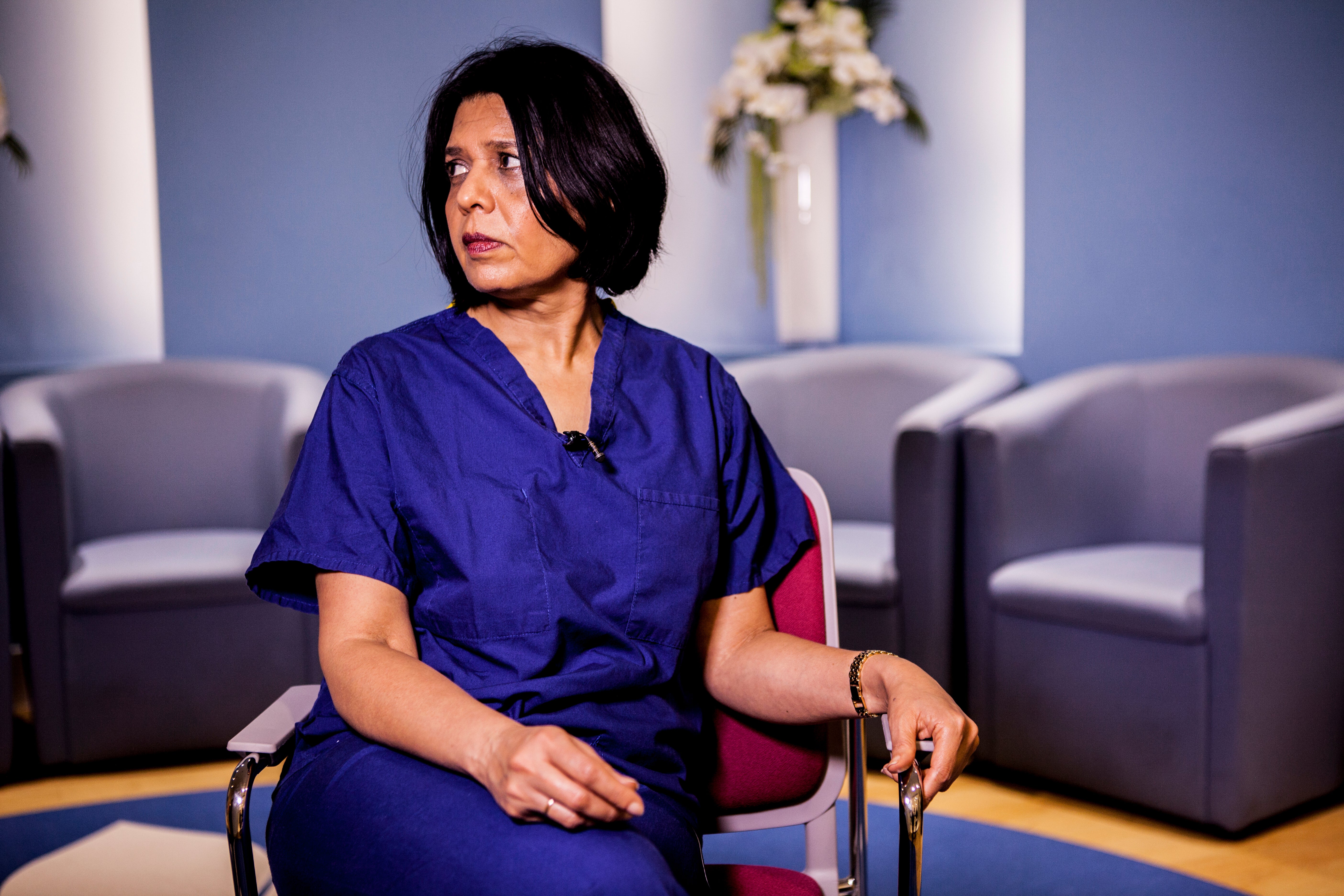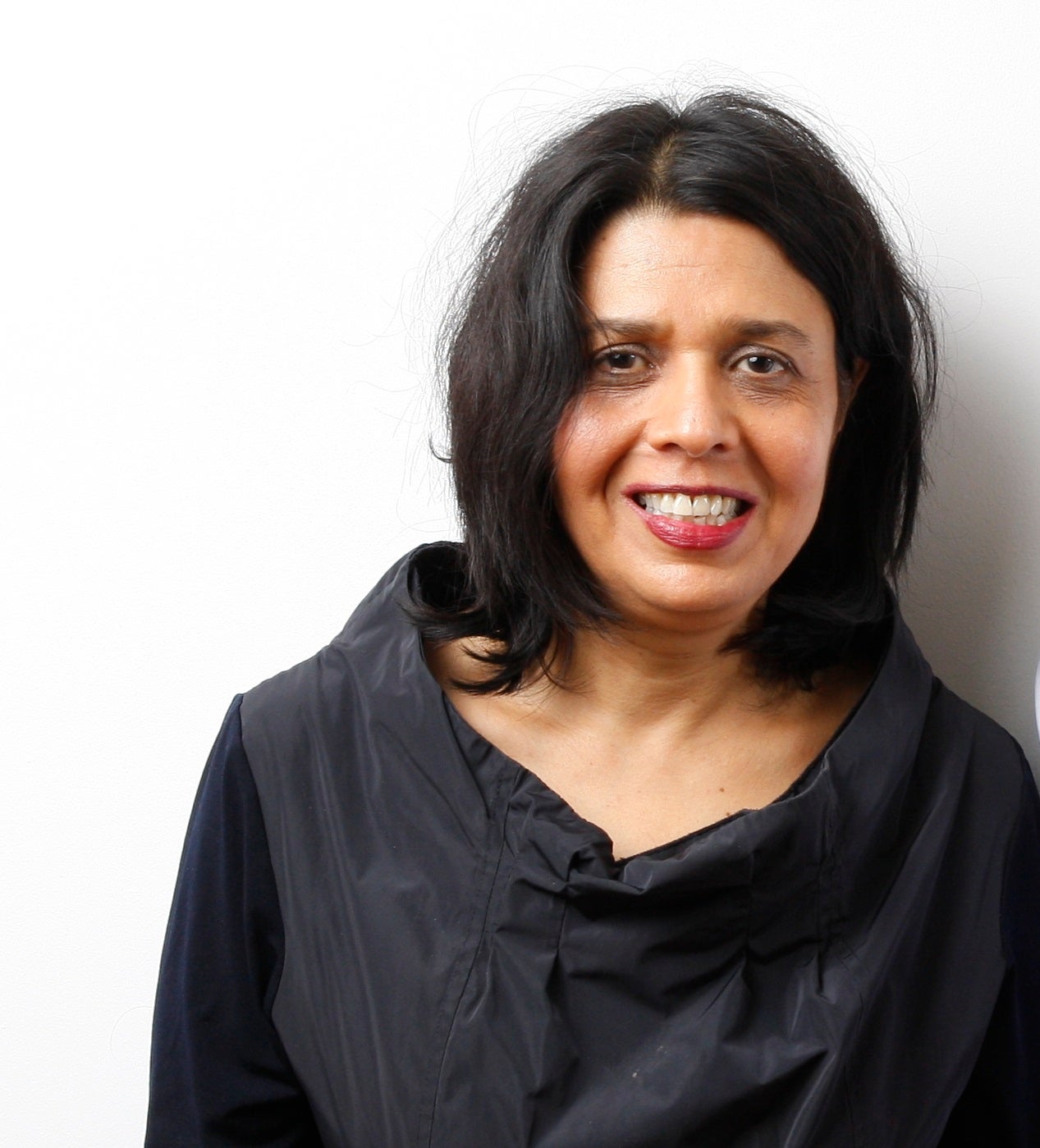How the founder of CREATE brought hope to those needing IVF
Dr Geeta Nargund has spent her career campaigning to improve access to fertility treatment. She tells Zlata Rodionova about how CREATE came to be


Ever since the world’s first in-vitro fertilisation baby was born in 1978 in the UK, the procedure has given hope to millions of couples who could not conceive.
Professor Dr Geeta Nargund, the founder and medical director of CREATE Fertility, says: “When I first started working in IVF as a junior doctor I heard about a condition called ovarian hyperstimulation syndrome, which can lead to complications and can be life-threatening.
“I thought that this cannot continue. This cannot happen. Women are having this treatment to create lives, why should we compromise theirs.”
As a pioneer in the field of Natural and Mild IVF, Dr Nargund has spent her career campaigning to improve access to fertility treatment and NHS funding in the UK, as well as tackling rising rates of infertility in the country through education in schools.
Mild IVF, also known as “Minimal stimulation IVF”, is similar to the standard procedure. What’s different is how much medication is used to stimulate the ovaries to produce eggs. As a result, women receive a lower dose of fertility drugs over a shorter period of time than with standard IVF.
According to Dr Nargund, it reduces the treatment time, costs and, most importantly, the side effects women can experience from the drugs.
She launched CREATE Fertility, her first IVF clinic specialising in Natural and Mild IVF, in Wimbledon in 2008. Twelve years later, it became one of the UK’s leading IVF clinics with 11 centres across the country.
In the face of increasing cuts to NHS funding, Dr Nargund’s drive to improve access to the treatment also led her to establish low-cost abc IVF clinics, with eight centres around the country today.
She says that by getting rid of unnecessary tests, appointments or add-on treatments, she has managed to reduce the cost of a single IVF cycle to £2,500 – about half the price of the UK market average.
The offer of a safe treatment at a reduced cost has understandably brought many patients to her clinics. In the last six years, CREATE Fertility’s revenue jumped from £4m to £21m and the company now employs nearly 200 staff.
Although Dr Nargund, who also works as a lead consultant in reproductive medicine at St George’s Hospital and NHS trust in south London, is visibly proud of her company’s success, she argues that money is not what motivated her throughout her career.
“I've always continued to pursue my dream and mission to empower as many women as possible so they can have access to a low-drug orientated treatment with less complications, as well as a safe pregnancy and babies.
“Making it affordable to me is as important as making it successful, because it increases access and it’s only then that you can achieve equality.
What is IVF?
In vitro fertilisation (IVF) is a method used to help people with fertility problems to have a baby.
The treatment involves removing an egg from a woman’s ovaries and fertilised using sperm in a laboratory. The fertilised egg, also known as an embryo, is then returned back into a woman’s womb to grow.
The process can use eggs and sperm from the couple themselves, or these can be sourced from a donor.
Couples having trouble getting pregnant should first speak to their GP, who can refer them to a fertility specialist. You can read more advice about getting started with IVF on the NHS website.
Difference between IVF and Mild IVF:
Women opting for mild stimulation IVF will receive a lower dose of fertility drugs over a shorter period of time compared with standard IVF.
However, if you don't take fertility drugs the success rates tend to be lower than for standard IVF and you may need a number of cycles to try to achieve pregnancy.
It is often recommended for women with a reduced ovarian reserve or those at risk of ovarian hyper-stimulation (OHSS).
The Human Fertilisation and Embryology Authority advises anyone who’s considering Mild IVF treatment to speak to their clinic about the number of treatments they've performed in the last year and their birth rates for women in similar circumstances.
“Without IVF treatment single women and same sex couples can't have children. Without helping them create families, we will never pursue our societal mission to become a diverse society.”
Dr Nargund studied medicine at Karnataka Medical College (which is now the Karnataka Institute of Medical Sciences) in India, where she’s from, before moving to London where she first worked as a junior doctor and trained at the Royal College of Obstetricians and Gynaecologists.
The research opportunities offered by the field, as well as her mother’s influence, is what led her to specialise in obstetrics and eventually fertility.
“When I was training as a medical student in India the first test tube baby was born and I was fascinated by that. The whole concept of helping people to create families drove me, as well the massive opportunities for research – it was quite new and great.
“But I keep saying to myself that everything I do, I do it for my mom. She really believed that women should get all opportunities. That was a big influence on me and it still is, even today.”
Being a pioneer comes with its challenges, and Dr Nargund admits she faced a lot of hostility and resistance in her own field at a time when most IVF clinics relied on high dose drugs and expensive processes.
This is perhaps why being recognised by one of her own peers, Sir Robert Geoffrey Edwards (who went on to win the Nobel prize for the development of IVF in 2010), remains one of her proudest moment to this day.
“In 2006, I organised the world’s first congress on natural cycle IVF at the Royal College of Obstetricians and Gynaecologists and Professor Edwards not only supported me but also spoke out about it following the event.

“I just felt like, here is this little Indian girl who believes this is the right thing to do, but actually getting these great people to talk and share knowledge was one of the proudest moments for me.”
As Covid-19 swept the country in March, IVF clinics hastily closed and most would not reopen until May. For those undergoing IVF treatments this meant increased times on waiting lists and delays when the one thing you don’t have is time.
Just like others clinics CREATE Fertility had to close for weeks, causing huge distress amongst patients.
“As you can imagine, like everybody else at the beginning of this, it was a very worrying time. I started following the rules, working from home and supporting patients during lockdown.
“There was a lot of distress, particularly amongst women whose egg reserve was going down day by day, they were worried that they may never get the chance to become a biological mother.
“IVF is an essential treatment, so I campaigned for the safe opening of clinics and we convinced the government that we can reopen the sector in a secure way.”
But the current uncertain climate has not deterred Dr Nargund from continuing with her expansion plans for the company.
“We will continue to expand both nationally and internationally to open up more clinics and give access to more people.
“Most importantly, my goal is to continue to provide safe treatment and success for patients during this worrying time.
“My dream is to continue doing more research in reducing complications for women in fertility treatments and be part of the equality project to offer women more choices.”
This article was amended on January 25, 2021, to attribute a sentence to Dr Nargund.
Join our commenting forum
Join thought-provoking conversations, follow other Independent readers and see their replies
Comments



Bookmark popover
Removed from bookmarks